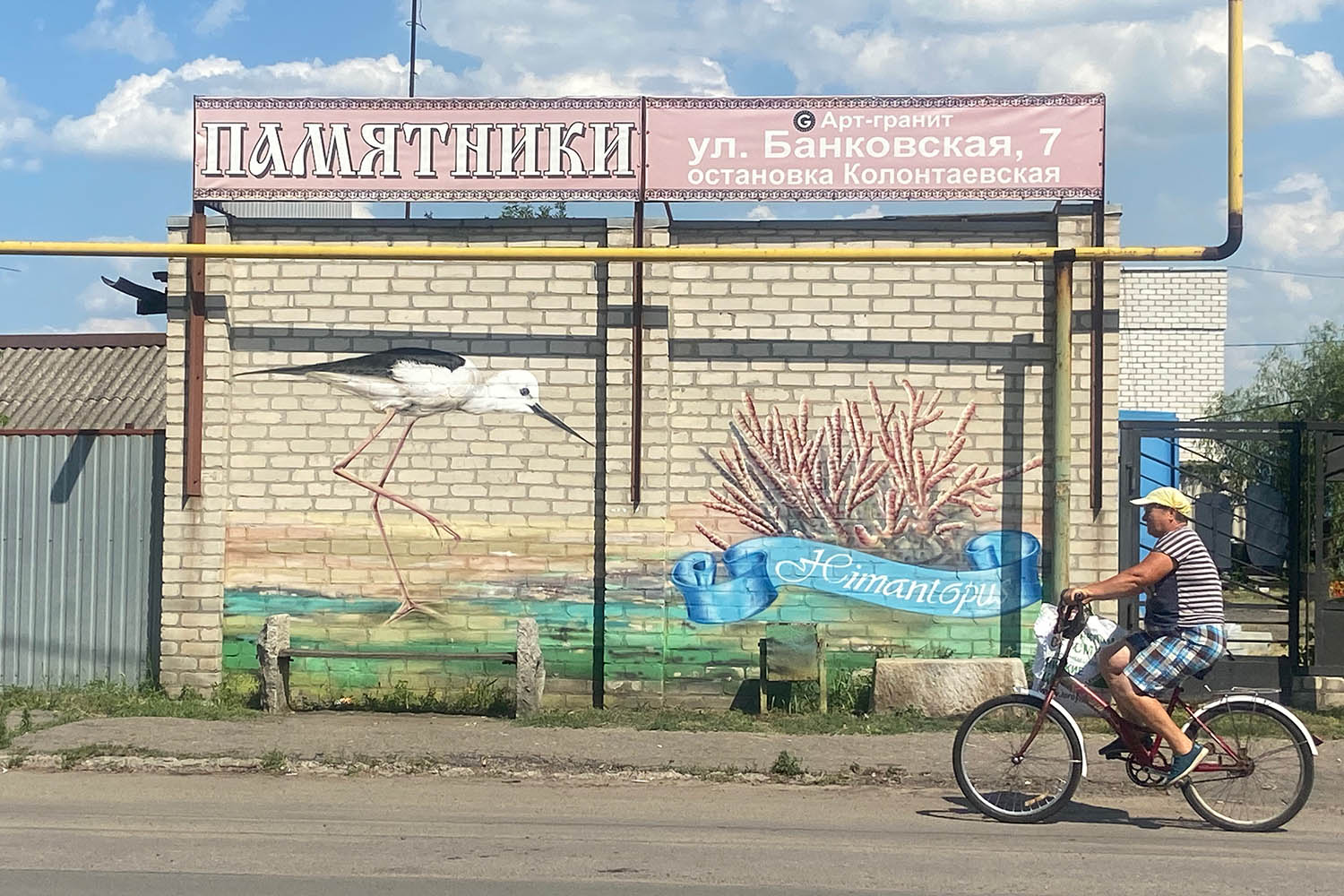Life in Spite of Everything: Tales from the Ukrainian East
Victoria Donovan
Daunt, £22, pp224
In recent years, the Ukrainian region of Donbas has become synonymous with war and occupation, but Donbas is much more than this. It has a central role in Ukraine’s industrial history, but it is also significant to the industrial development of Belgium, Germany, the UK, France and the US. Donbas has always been a testing ground for interesting and dramatic social experiments.
“It’s a place with a special history that is complicated and multinational,” says Andrii Prokopov – one of the many locals from whom Victoria Donovan gleans insight and understanding in Life in Spite of Everything. “Your mother registers you as Ukrainian, your father talks to you in Russian. Your grandad has a Polish surname, and your grandma is from St Petersburg. Your neighbour, for some reason, is Greek, and in school you have a German friend. And without even noticing it, you also become part of this place.”
At the beginning of the book, Donovan, a professor of Ukrainian and east European studies at the University of St Andrews, describes how she accidentally learned about the connections between her native Wales and Donbas. The now world-famous city of Donetsk was founded in 1869 by the Welsh engineer and entrepreneur John Hughes, who, having received a contract to supply metal fortifications for the Kronstadt naval fortress in St Petersburg, bought a plot of land near the Azov Sea and founded an engineering company there. He left London, where he was managing an iron works, and set sail for Ukraine with eight ships carrying everything necessary for the construction of a steel mill, including about 100 skilled workers and miners. A little later, several hundred more Welsh miners and workers arrived in Donbas. A settlement arose around Hughes’s plant and, in honour of the man who had built all of this, it was named Yuzivka.

In 1924, Yuzivka was renamed Stalin (in honour of Joseph Stalin), in 1929 it became Stalino and in 1961, at the height of de-Stalinisation, the city received its current name, Donetsk. Throughout, Yuzivka-Stalino-Donetsk continued to grow in size, becoming an increasingly important industrial centre that always played an important role in the propaganda machine of whoever controlled the territory: first, Soviet glorification of the hero workers, then post-Soviet agitprop all about the “special people of Donbas”, and in the past dozen years, anti-Ukrainian propaganda from Russia. But the region has always created its own narrative, as superbly depicted in Donovan’s book.
The root cause of both the development of Donbas and the Russian war for the region is geology. The richest deposits of rare earth metals and more traditional resources, such as coal and iron ore, are awaiting a new John Hughes, but the time of non-aggressive industrial development, alas, is over.
While demonstrating the area’s variety and colour, Donovan touches upon Donbas’s archaeological sites and nature reserves, describing in vivid detail her journey through the “national reserve” chalk territory in the company of Mihailo Kulishov, a historian and cartographer.
Another of the author’s interlocutors is the director of the Chalk Flora nature reserve, Sergii Limansky, who has captivating descriptions of the hundreds of rare plants that grow on the chalk soils near a bronze age site near the village of Belokuzminivka. Later we learn the fate of the reserve and that of its director after the start of Russian aggression. This book contains many stories that the war has paused or suddenly cut short.
Newsletters
Choose the newsletters you want to receive
View more
For information about how The Observer protects your data, read our Privacy Policy
Life in Spite of Everything is not the work of an armchair researcher. It is the result of patient fieldwork that took more than 10 years – a record of Donovan’s expeditions to the region and her communication with residents before the war; plus further conversations with the same people after they had become refugees.
The author creates vivid portraits of these displaced persons, accommodating their memories and commentaries, making you feel as if you’ve watched a documentary. The monologues of locals, with which each chapter begins, evoked a special response in my soul. Their voices enable us to see Donbas from the inside, a recreated but authentic place, as if viewed through a VR headset.
War is not central to this work. It is a story of people and nature, filled with sweet and bitter memories, empathy and hope.
Order Life in Spite of Everything at observershop.co.uk for a special 20% launch offer. Delivery charges may apply
